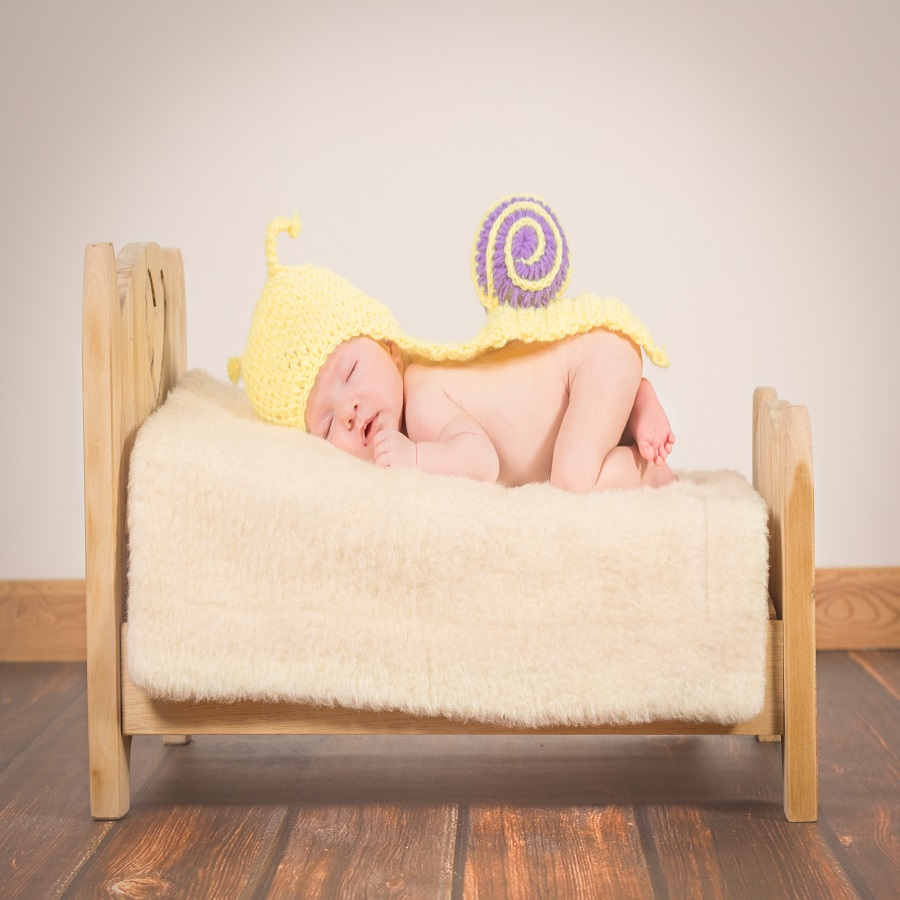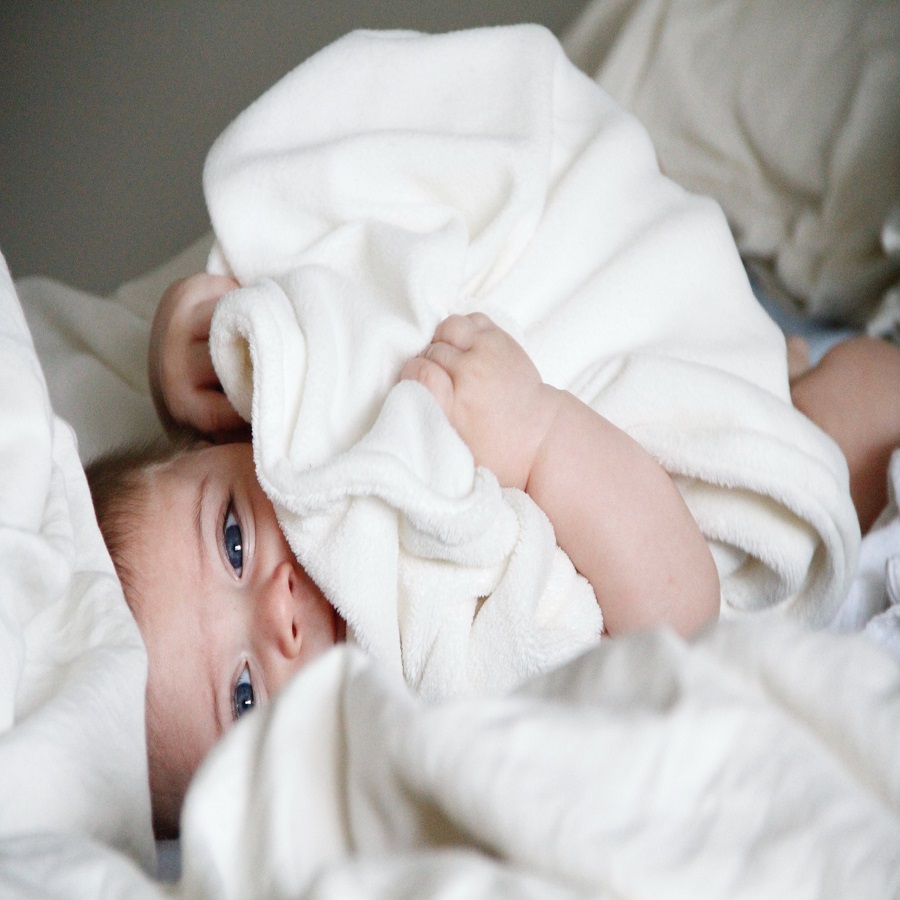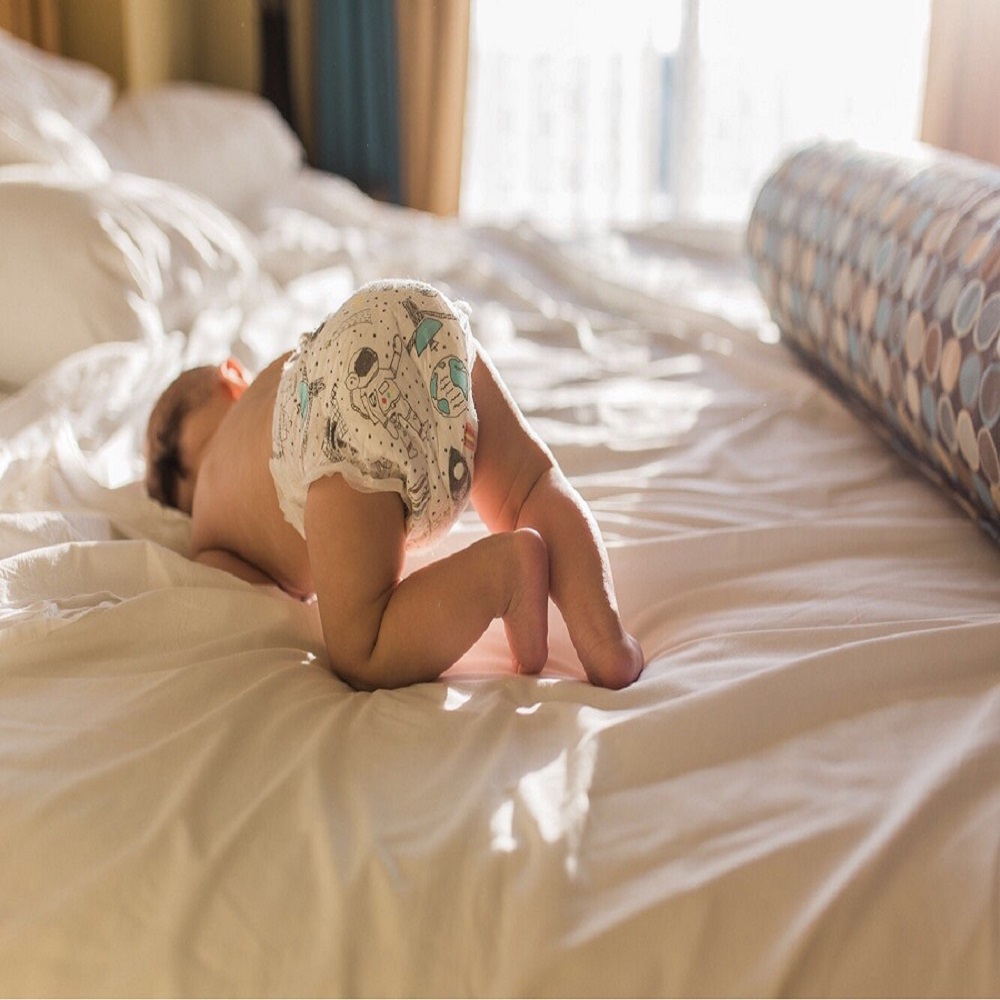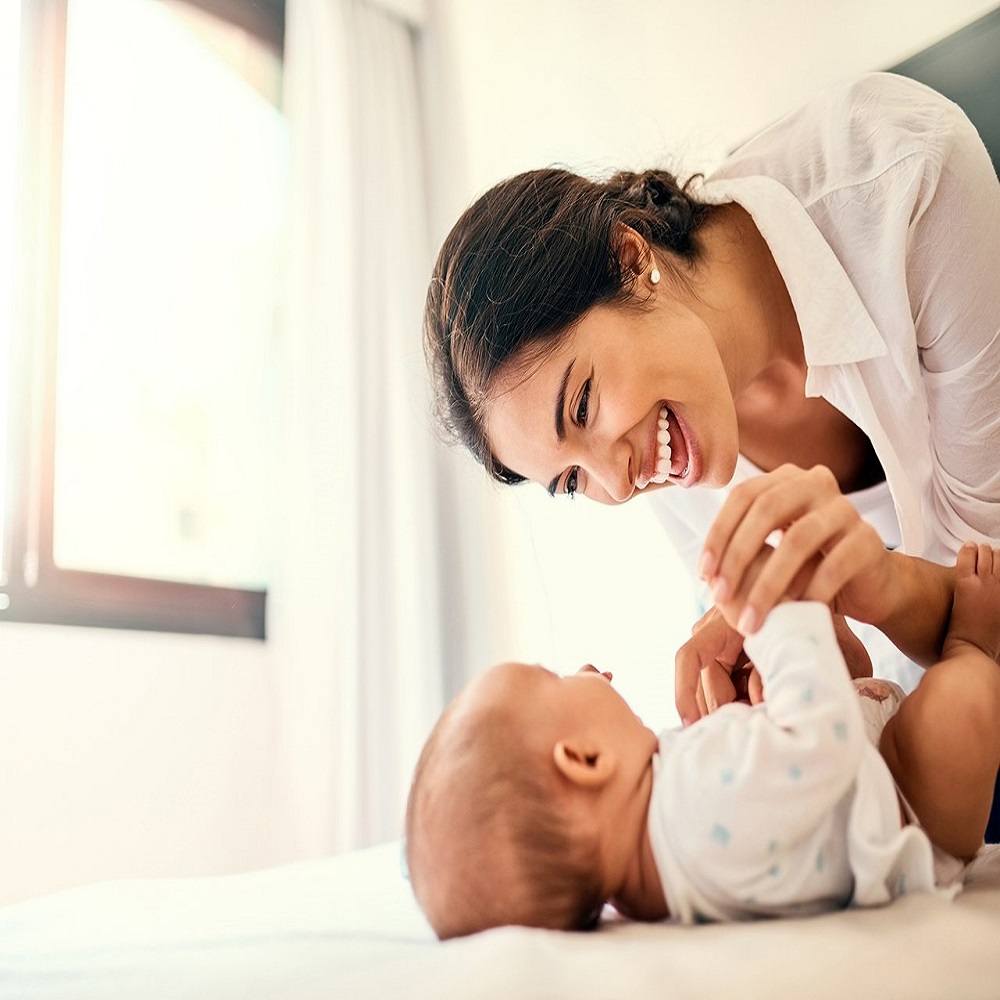Immediate Steps Following an Infant Fall
If your baby experiences a fall, it’s crucial to act swiftly and calmly to assess any potential injuries. Here are the immediate steps you should take following a baby falls:
- Stay Calm: Take a deep breath. Keeping calm helps you and your baby.
- Don’t Move Your Baby Rashly: If you suspect a serious injury, avoid moving your baby unnecessarily.
- Check for Consciousness: Gently call your baby’s name or tap their foot to see if they respond.
- Look for Injuries: Inspect for obvious wounds, bruising, or deformities.
- Comfort Your Child: Hold and soothe your baby; crying is a sign they are conscious.
- Seek Immediate Help: If you notice signs of serious injury or if you’re unsure, call your pediatrician or go to the ER.
It’s normal for parents to have questions after a baby falls off a bed. It’s important to monitor your child closely for any changes in their behavior or symptoms that may develop.

Key Signs of Serious Injury After a Fall
After your baby falls, look for key signs of serious injury. Here are some indicators:
- Lack of Responsiveness: If your baby does not react to their name or a gentle touch.
- Unusual Crying or Irritability: Non-stop crying or discomfort may mean pain or injury.
- Vomiting: Repeated vomiting may signal a head injury.
- Physical Changes: Look out for swelling, bruising, or abnormal limb movements.
- Behavioral Shifts: If your child acts drowsy, overly tired, or not like themselves.
- Seizures: Convulsions or twitching could indicate a serious issue.
- Difficulty with Waking or Sleeping: Challenges in waking up or altered sleep patterns need attention.
Remember, even if there are no visible signs, internal injuries could still exist. When in doubt, seek a pediatrician’s advice or head to the emergency room.
When to Seek Emergency Care for Your Child
Deciding when to seek emergency care after your baby falls can be stressful. Monitor your child closely and look for specific signs that may indicate the need for immediate medical attention. If you observe any of the following symptoms, it’s best to err on the side of caution and get your child to the emergency room or consult a pediatrician right away:
- Unresponsiveness or Altered Consciousness: If your child doesn’t respond or isn’t as alert as usual.
- Abnormal Breathing: Difficulty, irregular breathing, or any breathing concerns.
- Continuous Crying: Pay attention to crying that goes on for a long time; it may signal pain.
- Change in Skin Color: Pale, bluish, or any unusual skin color changes.
- Severe Bleeding: If there’s heavy bleeding that you can’t control.
- Visible Head or Bone Injuries: Signs of a head injury or fractured bones, like a misshapen limb.
- Repeated Vomiting: Vomiting more than once after a fall may indicate a head injury.
- Seizures: Immediate medical help is needed if your child experiences convulsions.
It’s also important to consider the height from which your child fell and the surface they fell onto. Falls from higher distances or onto hard surfaces are more concerning. Pediatrics experts note that babies can be surprisingly resilient, but their safety is paramount. Trust your instincts as a parent—if something feels off, it’s better to get it checked. Baby fell off bed questions can be addressed by professionals who will provide the reassurance and care that you and your child need.
Evaluating Head Injuries: Concussions and Skull Fractures
After your baby has a fall, checking for head injuries is key. A serious bump can mean a concussion or fracture. Look for these signs:
- Loss of Consciousness: If your baby seems out and doesn’t awaken easily, it’s a red flag.
- Drowsy or Confused Behavior: Not acting normal or seeming sleepy can hint at a head injury.
- Odd Crying or Calmness: If behavior is not like usual, especially after a fall, be concerned.
- Throwing Up: Vomiting once or more can point to a concussion.
If you spot any of these, don’t wait. Get your baby to a doctor fast. They may need a scan to check their brain.
- CT Scans: Doctors use these to find brain trauma. But they also mean radiation. That’s why doctors only use them when truly needed.
Skull fractures can be hard to see. Look for:
- Soft Bumps on the Head: These can signal a break in the skull.
- Fluid from the Nose or Ears: Clear or bloody fluids can mean a fracture.
Remember, even if you don’t see these signs, your baby still needs a checkup. Trust your gut as a parent. If something seems wrong, go to a doctor right away.

Home Care for Minor Bumps and Bruises
After ensuring that your baby has no serious injuries from a fall, you can treat minor bumps and bruises at home. Here’s what to do:
- Use Cold Compresses: Apply a cold pack to the bump for short periods. Use a cloth to cover the ice.
- Keep Them Comforted: Cuddle and soothe your baby. This can help them recover faster.
- Offer Pain Relief: If the baby is in pain, ask your pediatrician about giving acetaminophen.
- Monitor Your Baby: Keep an eye on the bump. Watch for increasing swelling or pain.
- Reduce Swelling: Keep the injured area elevated if possible. This helps reduce swelling.
- Rest: Allow your baby plenty of time to rest and recover.
For minor injuries, home care often helps. But watch your baby closely. If you see changes or worsening symptoms, call your doctor. Remember, it’s always okay to seek medical advice if you’re worried.
Preventative Measures to Avoid Infant Falls
As a parent, preventing falls is as important as knowing how to respond to them. Here are key preventative measures to help keep your baby safe from falls:
- Secure Your Environment: Baby-proof your home. Cover sharp corners and secure furniture.
- Use Safety Gear: Install gates at stair tops and bottoms. Use locks on windows.
- Stay Vigilant: Always watch your baby closely, especially on high surfaces like changing tables.
- Carry Carefully: When holding your baby, avoid carrying too many items. This helps prevent slips.
- Strap In: Always fasten your baby into strollers, highchairs, and car seats.
- Keep Floors Clear: Make sure there are no toys or items you could trip over.
- Use Night Lights: Have lights on at night to safely see where you’re stepping.
By following these steps, you can drastically reduce the likelihood of infant falls. Remember, it’s better to be overly cautious than to face the consequences of a fall.
Understanding the Resilience of Infant Bones
Infant bones differ from those of adults. They are more flexible and soft. This means they are less likely to break during falls. It’s why babies can often escape serious harm from a tumble. The softness of their bones allows them to absorb shocks better. But, this doesn’t mean falls are harmless.
Infant bones are growing and developing. They can still suffer from fractures or injuries. It’s important to monitor your baby after a fall. Look for any signs of pain or discomfort. These could suggest an injury even if there is no visible break.
As babies learn to move, baby falls can happen more. It’s all part of growing up. Their bones are designed to handle some bumps as they learn to crawl and walk. Still, always be careful and protective of your baby.
In short, babies’ bones are built to be resilient. This helps them as they grow and explore. But always stay watchful and seek medical advice if you suspect any injury. It’s better to be safe and get checked by a pediatrician after any fall. Remember, when in doubt, it’s wise to consult with a professional.

Guidance For Parents: Staying Calm After a Fall
When a baby has a falls, it’s vital for parents to stay steady. Here’s why:
- Staying calm is key: Your composure aids your baby’s comfort and ensures clear thinking.
- Deep breaths help: Inhale deeply, exhale slowly. This controls panic, allowing rational actions.
- Calmer parents think better: Clear thought leads to careful checking for baby’s injuries.
- Your calm affects your baby: Babies pick up on stress. Stay composed for their sake.
- Talk softly to your child: A gentle voice can reassure and soothe your infant.
A fall can frighten any parent. But calm action is essential. Keep these tips in mind if it happens. They will steer you through the initial shock. Then, you can properly attend to your little one’s needs.
